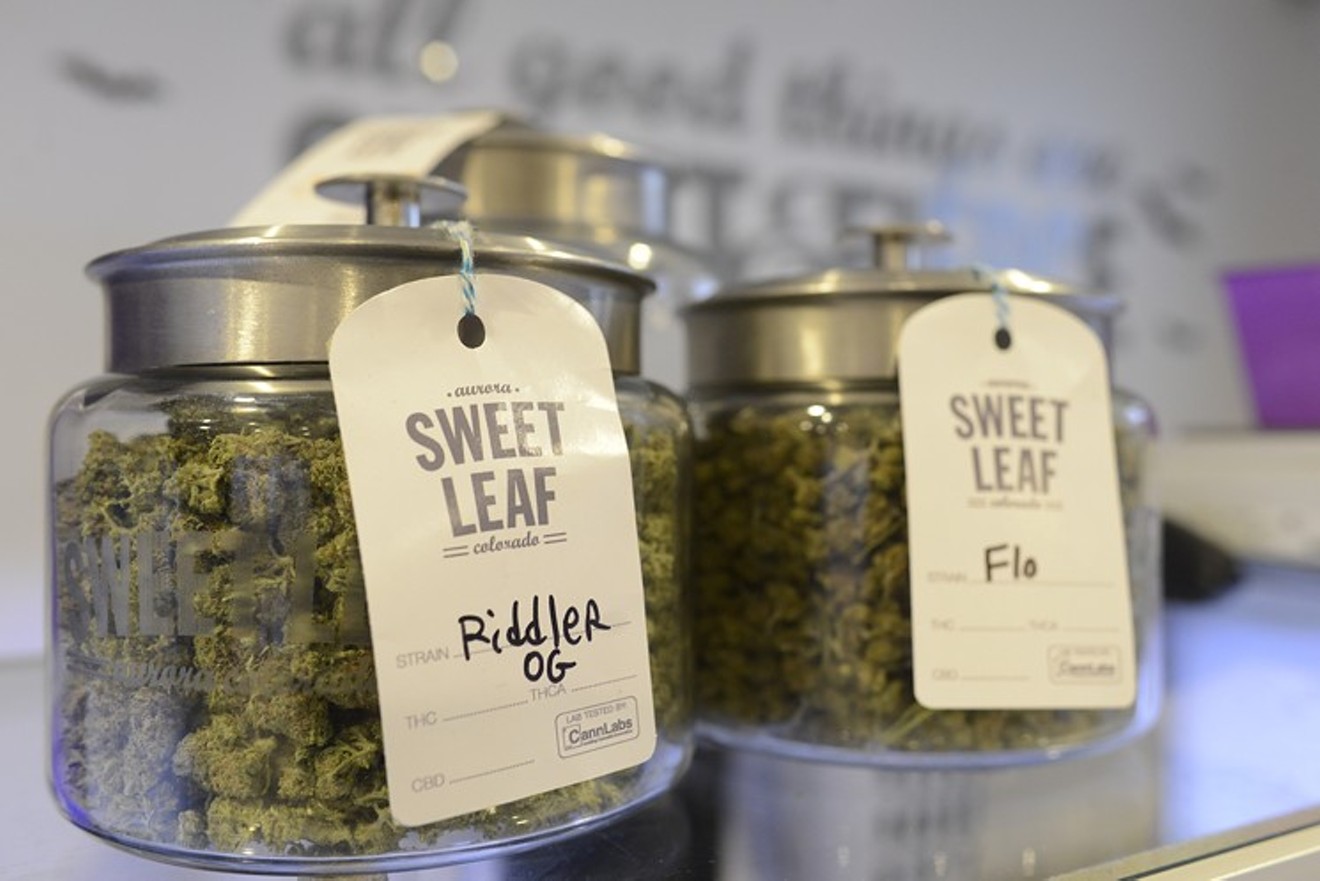But what about selective enforcement when it comes to federal or state statutes? The stakes become much higher. And in this no-win situation, merely grinding your bag into the asphalt looks pale in comparison.
In December 2017, Sweet Leaf locations in Colorado were raided by local drug enforcement officers. At least eighteen budtenders were charged with distribution of cannabis (their job description) for a practice coined as “looping." The newly coined term referred to individuals coming into the store, purchasing an ounce of cannabis, leaving the store, presumably placing it in their car — and then returning for another ounce of cannabis over and over again until they had an illegal amount in their possession.
At the time of arrests, the state law provided wording that stores could only sell one ounce per “transaction." Essentially, Sweet Leaf stores were following the law through purchasing limits, even though the individuals may have been in possession of too much cannabis constitutionally. You are only allowed to possess one ounce of cannabis on the streets in Colorado.
Additional constitutional protections under Amendment 64 explicitly state that dispensary owners and employees are legitimate businessmen in Colorado, and not criminal enterprises.
Despite the protections afforded under the state constitution, the budtenders faced distribution charges for selling legal cannabis, in legal amounts, over a legal counter and scale. Many of them had never been charged with a criminal offense and were your ordinary, law-abiding citizen who had scored an entry-level job at Sweet Leaf. All eighteen were found not guilty, and charges were dismissed…with a community-service promise.
The managers of Sweet Leaf, Ashley Goldstein and Nichole West, were not so lucky. They, too, were charged with distribution. However, their options for dealing with the situation were not the same as the budtenders'.
Faced with the additional criminal charges, Sweet Leaf owners filed suit against the Marijuana Enforcement Division, City of Denver and State of Colorado. That suit was to uphold constitutional protections for legitimate marijuana business owners in Colorado, and to protect them from criminal charges stemming from the looping cases.
Faced with a constitutional violation of individual and business rights in Colorado, the state, city and MED took a different approach. Backed by Robert Troyer, U.S. District Attorney at the time, the defendants were offered two paths: Sweet Leaf drops all civil suits against the state, MED and the City of Denver, and takes the criminal plea deal the state has offered: a felony with thirty days' jail time. Or face federal prosecution of cannabis distribution, which could net a 45-year sentence in a federal detention facility

All of Sweet Leaf's locations were served suspension or closure notices from the MED in 2017 and 2018.
Thomas Mitchell
You might be asking yourself: What is so unusual about that? Nothing, really, considering the long history of prohibition. However, in Colorado, a constitutional amendment was passed to eliminate prohibition. The citizens even demanded that a tax base be included for “legitimate” tax-paying business owners. The state passed excise taxes on cannabis and have collected over $900 million in taxes — taxes being paid by legitimate businessmen in Colorado, but who are also mere criminal drug dealers under federal statutes. See, here is exactly where the slippery slope is in selective enforcement.
The state officials who collect $900 million from illegal Schedule I drug sales are not being indicted under federal drug charges or RICO statutes. Apparently, those officials are above federal law, even though they are co-conspirators in selling Schedule I drugs (cannabis) in Colorado, and collecting revenue.
State and federal agents routinely rout out large-scale cannabis grows in Colorado that don’t pay taxes and label them as cartel grows. The feds are able to seize all the assets, while the State of Colorado eliminates another non-tax-contributing grow. These are merely mob tactics executing selective enforcement of state or federal law.
And you might still be asking yourself: What is unusual about that? Amendment 64 was passed to protect Colorado citizens from criminal prosecutions stemming from cannabis and place it in the hands of legitimate businessmen. But when analyzing the selective enforcement in the Sweet Leaf case, it becomes apparent that your constitutional rights are null and void when the state works with the feds to prosecute you for cannabis in Colorado, licensed or not.
If the Sweet Leaf owners, managers and employees continued to defend their constitutional rights under state law in Colorado, which would likely prevail, they would be doing so from a federal prison after a federal criminal case had convicted them of distribution — in all likelihood, a slam dunk for the feds, with undeniable METRC (the MED's system for tracking cannabis production and sales) records of all the cannabis the centers had ever sold. This is information demanded by the State of Colorado to be documented in order to hold a license to distribute cannabis in Colorado.
Local officials, including lawmakers who pass statutes that violate the state constitution, remain above the law in their actions of collecting Schedule I tax dollars while continuing the war on cannabis in Colorado. They collect and spend at will, with impunity, tax dollars generated by growing cannabis, while tax-paying businessmen and -women at Sweet Leaf catch cases by way of selective enforcement for showing up and executing their jobs.
On January 25, 2018, the owners of Sweet Leaf took one year in jail for a plea deal, which also adds to their $21 million in asset forfeiture.
#taxedNOTlegal
Chris Jetter is a cannabis activist and entrepreneur in Colorado, organizer of the Colorado Invitational Bong-A-Thon, and former employee of POTUS Club, a now-closed social cannabis consumption club in which Jetter was arrested for alleged unlicensed cannabis sales.
Westword occasionally runs opinion pieces on matters of interest to residents of metro Denver. Have one you'd like to share? Email [email protected].











